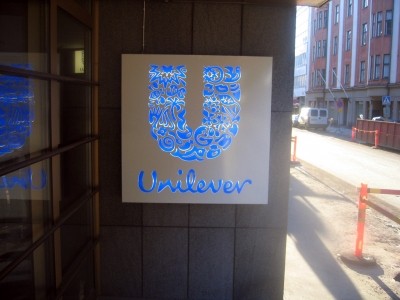Unilever boss calls for takeover review

In an interview with Polman, reported in The Observer last month, Polman argued against the short-termism that lies behind many business takeovers.
The Unilever boss suggested that deals – such as Heinz Kraft’s attempt to acquire Unilever –were often driven by a desire to make quick returns for shareholders at the expense of longer-term sustainability for all stakeholders. And for his firm, this included its 10,000 UK employees.
Polman called for a “level playing field” for mergers and acquisitions (M&A), and his views have been supported by others.
“We should try to ensure there is a level playing field so that overseas acquirers can’t just take advantage of currency, cheap debt and other macro factors to make acquisitions that don’t provide any benefit for the UK,” said Trefor Griffith, partner with corporate finance company Grant Thornton UK.
However, it should be noted that Unilever, the international Anglo-Dutch giant that owns food brands Marmite, Lipton tea, Hellmann’s mayonnaise and Ben & Jerry’s ice cream, is currently reviewing its own structure since the Kraft Heinz bid.
Reviewing its own structure
It has also announced the sale of its spreads business, plans for a 5bn share buyback and a target of 20% profit margin by 2020.
Griffith questioned the ability of most food and drink firms to achieve Unilever’s 20% profit margin target given the “ultra-competitive” nature of the retail market in the UK.
“Polman mentions 20% profit margins, which may well be achievable for a large multinational with a stable of very strong brands, but for most of the industry this is completely unachievable,” he said.
Julian Wild, a food and drink M&A advisor and partner at corporate finance specialist Rollits, also supported Polman’s concerns.
“Polman has raised some interesting and important issues about ‘short-termism’ in businesses generally and the stock market in particular,” said Wild.
“Investors are understandably focused very tightly on financial performance and delivering consistent profit growth, positive cash generation, strong balance sheets and healthy dividends.”
An easy place to do business
Wild went on to highlight that the UK prided itself on being an easy place to do business, with a relatively low level of barriers to corporate takeovers and investment.
And, with Brexit looming, low interest rates and sterling devalued, the UK was a great place for foreign investors to come looking for attractive opportunities, he added.
“However, there is a thin dividing line between introducing greater regulation to prevent ‘aggressive asset-stripping or tax avoidance’ [announced in the Conservatives’ general election manifesto] and protectionism,” said Wild.
“The Conservatives may talk about making life tougher for avaricious bidders, but will this amount to much in practice? Has the Competition and Markets Authority flexed its muscles much of late?
“The fact that Polman and Unilever immediately implemented some of the measures Kraft Heinz would have done – disposals, share buy-backs and margin-improvement – is indicative that they caught Unilever napping. It was a nasty wake-up call for the Unilever board, but not before time.”
Wild concluded: “Polman’s best defence is to build Unilever’s share price and make it too expensive to buy with too little fat to trim. He is already on with that. It’s a better use of his time than waiting for government to ride to his rescue.”















